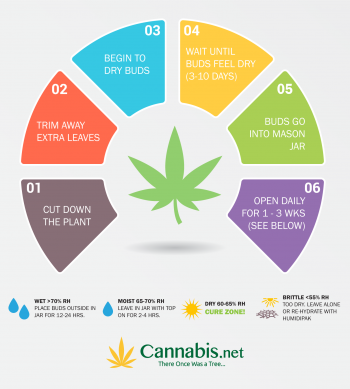Is There 'Adulting' in Today's Cannabis Industry?
We in the cannabis sector have slowly realized that we need to mature. Gone are the days of making reckless judgments and rules whenever they suited us. It is now up to us as company owners and stakeholders to raise our professionalism to prepare us for what is ahead.
If we don't, as CEOs of a vertically integrated cannabis company, we will often find ourselves returning to this "adulting" issue as the years go by. This post contains comprehensive information obtained from respected cannabis stakeholders in the US cannabis market about their views on navigating the cannabis market..
Finance and Banking
One of the most critical questions cannabis business leaders need to constantly ask themselves, according to Sanat Patel, the chief lending officer of AVANA Companies, a financial services provider with a focus on the cannabis industry, is What differentiates your commodity from some other company's commodity? Any commodities industry must accept the inevitable compression of margins as a necessary part of doing business.
Patel emphasized that one of the most significant obstacles facing cannabis business owners is access to financing. Raising more money than you think you'll need is essential to withstand financial setbacks and market fluctuations.
He advised that business owners must ensure their business has access to enough funding to see it through the buildout phase, taking into account eventualities and extra cash flow support until they can raise more money.
Other bits of advice that he gave include:
-
Have a fundamental understanding of, and be able to communicate with people about, the clients you are aiming to attract
-
Include at least one member of your team who is highly skilled in finance, including accounting, cash flow modeling, and communication with financial institutions.
-
Create worst-case scenario plans for your business during both the startup and development phases, taking into account potential financial shocks and other problems your business may encounter.
Law of Cannabis Finance
Sundie Seefried, CEO of Safe Harbor Financial, has been offering financial services to cannabis businesses since 2015. Seefried advises that cannabis business owners must understand the Cole Memo because, despite your belief that everything you are doing is legal, any hint of illegality will draw attention to your finances and trigger audits.
The Cole memo addresses eight topics: preventing minors from accessing cannabis, unlawful cultivation, criminal activities, and money management. For instance, one of the items lists "Preventing proceeds from the sale of marijuana from going to criminal businesses, gangs, and cartels" as one of the Department of Justice's goals. This looks to be an easy task. But how well-acquainted are you with your transaction's counterparties? Even though they could have a license, she claims that if they are engaged in backdoor activities and are discovered, the company's records will list your company. You will, at the very least, be questioned. In the worst scenario, you'll need to engage attorneys to help you pickle.
Public Relations in the cannabis sector
Contrary to the first efforts of many fledgling firms, effective PR involves a broad and deep effort that is equally proactive and reactive. According to Josh Weiss, president and CEO of Scottsdale-based 10 to 1 Public Relations, mature organizations are aware of this. They focus on building "strong and lasting reputations built to inspire enthusiasm and trust but also to withstand storms." These PR tenets apply to all industries, and the cannabis sector is no exception. You're seeking to control more than simply the distribution of your items; this goes way beyond Marcom.
Even established, stable businesses with well-known product lines still experience little stigma regarding consumer acceptance. And although marijuana may add a few more complexities to PR best practices, the principles are still the same. Weiss advises that businesses remember the fundamentals. That includes sharing brief, uplifting tales [such as case studies of community involvement in your area], firm updates [such as new products or hiring], participation in community programs and chamber of commerce, etc. These foundational principles gradually increase your trust with reporters and audiences. Buyers (whether they are B2B or B2C) desire products and services with a solid reputation for quality, cost-effectiveness, and, increasingly, a dedication to triple-bottom-line goals.
According to Weiss, "Mature PR is aware of this and is ready to assist you in reacting (i.e., taking ownership and concentrating on what you're doing correctly) and proactively preparing for crises. This entails community involvement and connections with people who aren't just interested in your goods. Building equity early, before you need it, and creating an emergency plan is critical.
Marketing and Brand Communication
On the surface, it may appear simple to develop marketing communications that connect with your target audience—targeted message, hot pitches, appealing imagery, adequate packaging, etc. However, (even good) appearances may be misleading, as any professional in the field would attest. Young businesses frequently "wag the dog" with their marketing initiatives, concentrating on these joint articulations while ignoring what should be the fundamental element—brand, especially in new and emerging sectors.
Thomas Blanck, owner of TMB Partners, a strategic marketing company with locations in Michigan and Arizona, says, "These tenants can only come via planning and strategy creation." She said they shouldn't be based on presumptions, instincts, or individual aesthetic preferences.
A brand should be designed with a strategic position (see your mission/vision) and a knowledge of your trajectory and where you want to be one, five, or even ten years later. The brand serves as the center from which marketing activities should emerge.
Blanck firmly believes that an enormous and unexplored market exists for older clients on the B2C side of the cannabis industry. He observes that although more established businesses are beginning to understand this, some younger ones are only focused on seeming "young and trendy." These characteristics, as well as creating a brand that can appeal to the whole range of your target market, are what Blanck believes are sometimes underestimated. There are a lot of people in this game who are beyond 60 years old, he cautions. Sophisticated brands and their marketers will target this market. The simple-minded won't even be able to notice it.
There you have it!
Adult advice to help you navigate through the murky waters that are currently in the cannabis industry.







